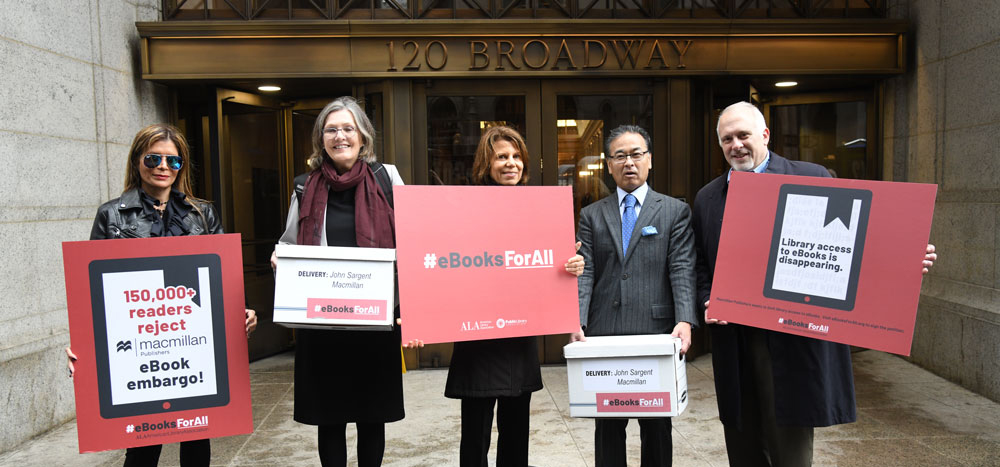Limiting access to eBooks for libraries means limiting access for readers like you.
America’s libraries are committed to promoting literacy and a love of reading with diverse collections, programs and services for all ages. Downloadable content and eBooks are often many readers' front door to accessing material at their local library.
In 2019, one publisher announced it would limit readers’ access to new eBook titles through their libraries.
Macmillan Publishers decided it would allow libraries — matter the size of their city or town — to purchase only one copy of each new eBook title for the first eight weeks after a book’s release.
Before the embargo took effect on November 1, 2019, ALA collected 160,000 signatures from readers who urged Macmillan not to go through with their plan. We delivered these signatures in person to CEO John Sargent, but Macmillan's policy remained unchanged. Readers have been persistent in their opposition. Signatures on our petition eventually increased to more than a quarter of a million.

CAMPAIGN UPDATE: On March 17, 2020, Macmillan suddenly reversed its embargo on eBook sales to libraries, acknowledging the impact of COVID-19. Macmillan’s return to its original lending terms signaled a new starting point for all publishers to consider how they can work with libraries to ensure — and expand — access for all readers.
While the petition is on pause, ALA continues to advocate for digital access, focusing now on federal government intervention. ALA has been engaging members of the the US House Judiciary Subcommittee on Antitrust, Commercial, and Administrative Law on equitable access to information and expects developments on this front soon.
Sign up to receive occasional updates on the investigation and future opportunities to advocate.
This is personal.
We must have #eBooksForAll!
What We All Can Do
FAQ
Find out how to respond to questions surrounding the issues behind eBook embargos by publishers.
GET INVOLVED
Help spread the word about the importance of eBooks in libraries with our tools and shareables!
JOURNALISTS
If you are a member of the media, check out our eBook Lending Press Kit.
The American Library Association envisions a world where libraries are central to lifelong discovery and learning and where everyone is a library user. Your gift to ALA helps advocate for and improve library and information services and the profession of librarianship, to ensure equal access to information for all people.

